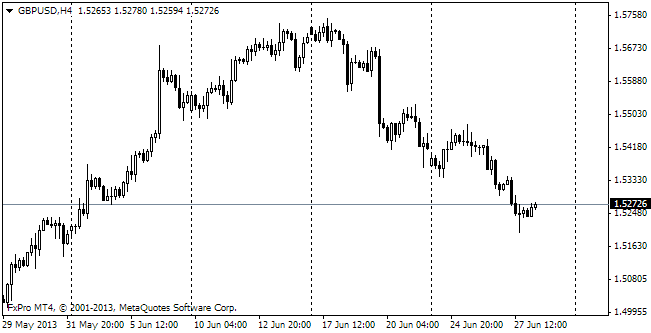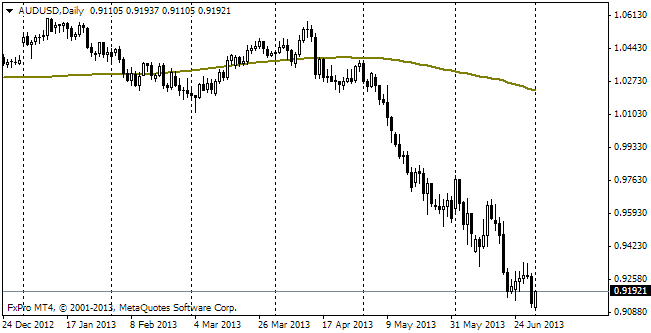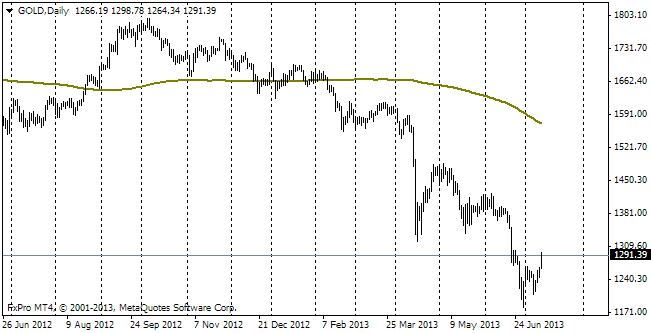EUR/usd
Yesterday G7 leaders signed a joint statement, disapproving Russia's actions in regard to Ukraine, but at the same time didn't mention any specific sanctions and left a chance of diplomatic resolving of the conflict open. The markets regarded the statement as quite mild , which helped the single currency recoup the intraday losses. The surge of optimism for a while provoked growth in eurusd, so as a result the pair jumped from the daily low of 1.3769 up to 1.3875. This considerable scale of growth couldn't but trigger stop orders, but eventually trading consolidated near 1.3830. Turning to yesterday's statistics, weakening of Germany's PMI was remarkable. The index is still quite high, but the factors causing slowdown are already coming into effect. As you remember, ZEW Economic Sentiment spoke about the same last week. Today this tendency can be confirmed or, on the contrary, refuted by Ifo's indicator. The market participants attach much importance to it, so deviations from the expected rates may swing the pair in one or the other direction. In the meantime, Russia's reaction to yesterday's statements of G7 and possible actions of the Russian and Ukrainian military forces still pose a significant risk. It's also worth paying attention to draghi's speech in Paris. At the weekend we heard lots of claims in regard to the future interest rates in the eurozone and now we need to know the opinion of ECB governor. Yesterday Finland's representative Liikanen spoke about a possibility of bringing the rates down below zero, At the weekend ECB deputy governor Constancio, in his turn, mentioned that the ECB didn't peg its monetary policy to any specific economic indicators. In this way he somewhat hinted at the futile experiment of the Fed, when it abandoned one of the instruments of the non-traditional monetary policy – targeting of the employment rate – and said that in its actions it would rely on ‘a broad selection of indicators'. In general, it can be characterized as desire to return to the traditional monetary policy.
GBP/USD
The British pound grew against the dollar on Monday, but showed a much more sluggish performance. The clue is that the positive of the euro wasn't supported by stock exchanges. Besides, today we should be cautious with the pound as Britain publishes inflation data. Later, in the afternoon, there is a release of the US new home sales and of the Consumer Confidence Index. The US news should either reflect confidence of the economic recovery or again point out sluggishness of the growth. The labour market is expected to correct slightly after the impressive growth, while the consumer confidence, on the contrary, is expected to grow.

AUD/USD
After the initial growth, the aussie managed to return above 0.9100 and continue its way up. The Australian dollar is now trading at its three-month high, very close to its 200-day moving average. The pair's performance at this level will be of great importance. There is a feeling that the Australian currency won't find it easy to cross this line with a swoop. We're waiting for a correction this week before the beginning of further growth.

gold
The news, which caused demand for the euro, at the same time provoked selling of Gold. The correction, which have been in action since last Monday, have already deprived the metal of 70 dollars, bringing it down from 1380 to 1310. This divergence of Gold's and the Aussie's prices is not characteristic of the markets. Most likely, they will soon find a common road.
